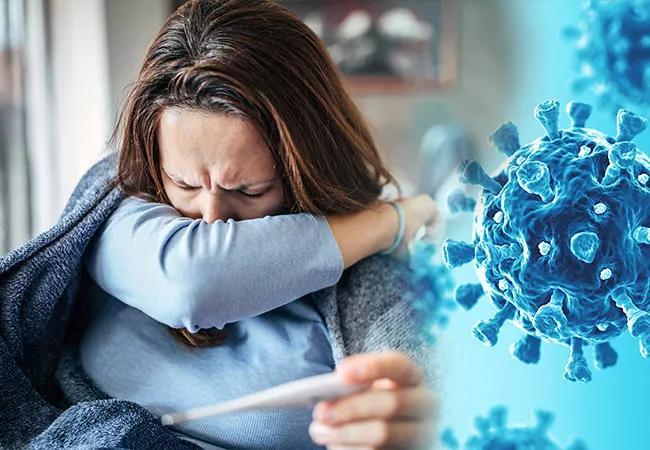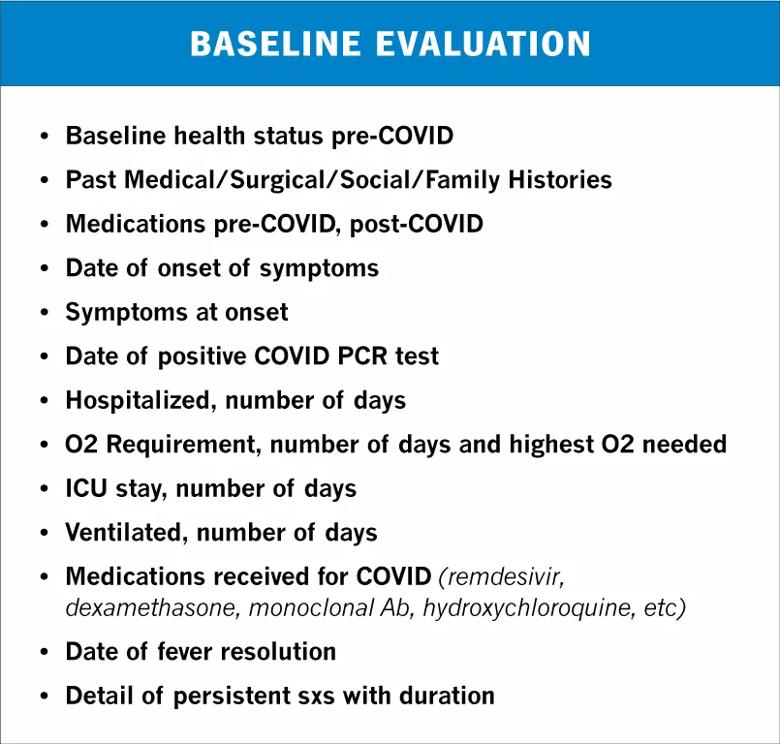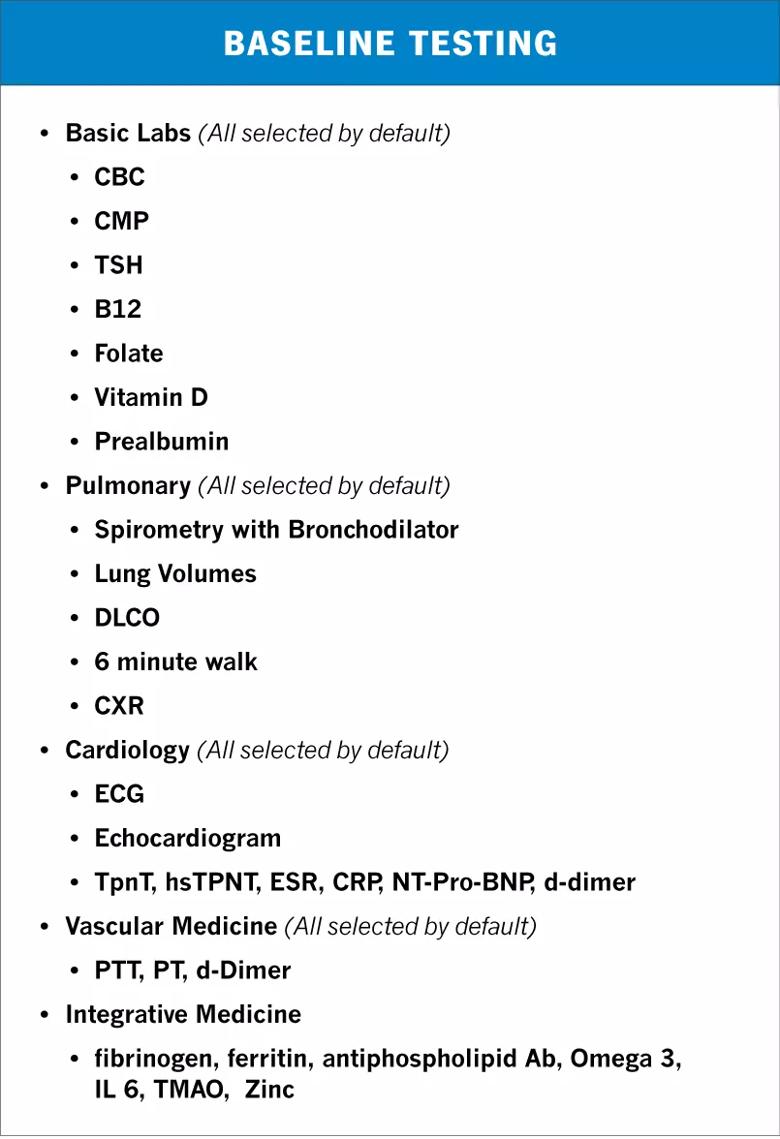New clinic serves as an entry point for Cleveland Clinic patients

Image content: This image is available to view online.
View image online (https://assets.clevelandclinic.org/transform/cf456c47-ead9-4b30-850c-e676343beda4/650x450-Covid-ReCOVer-Clinic_jpg)
650×450-Covid-ReCOVer-Clinic
The long-term effects of COVID-19 are not well-described. While most individuals who develop the disease eventually return to normal health, some have reported unresolved long-term symptoms, according to the Centers for Disease Control and Prevention (CDC).
Advertisement
Cleveland Clinic is a non-profit academic medical center. Advertising on our site helps support our mission. We do not endorse non-Cleveland Clinic products or services. Policy
Kristin Englund, MD, an infectious disease physician in Cleveland Clinic’s Respiratory Institute, says that identifying which patients are most susceptible to developing post-acute sequelae of COVID-19 (PASC), known colloquially as “Long COVID,” is chief among current research investigations exploring this condition.
“We know that patients with lingering COVID-19 symptoms aren’t necessarily those who were hospitalized with severe cases initially. Many patients have had a fairly mild infection, yet, symptoms have persisted more than four weeks or potentially worsened after time,” she says.
The CDC reports that the most common long-term symptoms include: fatigue, shortness of breath, cough, and joint and chest pain. Other reported symptoms include difficulty concentrating, depression, headache, intermittent fever and heart palpitations.
And researchers are still learning more about the more serious long-term complications, known to have a pathologic effect on other organ systems. Cardiovascular, respiratory, renal, dermatologic, neurological and psychiatric diseases have been reported.
Given the complex, multi-organ nature of PASC, Dr. Englund says there is a significant need to take a multidisciplinary approach to treat symptoms of the disease. This is why Cleveland Clinic patients with persistent COVID-19 symptoms can now gain access to a wide variety of specialists and resources through the reCOVer clinic.
Dr. Englund, who leads the center, says it’s an entry point for these patients, who will undergo a thorough evaluation and referral. The clinic collaborates with Cleveland Clinic specialists from 18 different clinical areas, including:
Advertisement
All patients in the reCOVer clinic, regardless of symptoms, will first undergo a series of evaluations and exams, which may take several weeks to complete. This includes an in-depth health history and questionnaires. Once this is complete, patients will meet with reCOVer clinic providers to discuss the results and individual next steps. Depending on a patient’s results, symptoms and needs, clinical experts will determine the best care path for the patient moving forward and connect them with Cleveland Clinic specialists with specific expertise in long COVID-19 for continued care.

Image content: This image is available to view online.
View image online (https://assets.clevelandclinic.org/transform/e9a953cc-f9e9-44de-b7af-2f61811b90f6/805x-Inset-Baseline-Evaluation_jpg)

Image content: This image is available to view online.
View image online (https://assets.clevelandclinic.org/transform/45a294e3-0bc6-42ca-a479-57dc1f6cb27c/805x-Inset-Baseline-Testing_jpg)
“We are committed to helping these patients, whose lives have been interrupted for weeks or months due to long COVID-19 symptoms,” said William Lago, MD, a family medicine physician who was also involved in the development of the reCOVer clinic.
“This is a complex condition and one that we are understanding more about every day. By taking the time to perform multidisciplinary, comprehensive evaluations, we believe we can best partner with our patients in putting together treatment plans and setting them on a path to wellness.”
The clinic sees adult patients who have had a positive PCR test result and have persistent COVID-19 symptoms that have lasted 28 days or longer after their initial positive PCR test result. The reCOVer clinic, while located at the Cleveland Clinic Independence Family Health Center, serves patients throughout Northeast Ohio via a virtual platform. Currently, the clinic sees Cleveland Clinic patients by referral but plans to expand services to any long COVID patient in the future.
Advertisement
Specialty care teams will also be working on research related to PASC. Members of the clinic will have access to biobank specimens that will support robust research design.
“We are confident that a multidisciplinary approach is in the best interest of our patients, but it’s also a strategy to further research collaborations and contribute meaningfully to the literature,” Dr. Englund concludes.
Advertisement
Advertisement
Patients report improved sense of smell and taste
Clinicians who are accustomed to uncertainty can do well by patients
Unique skin changes can occur after infection or vaccine
Cleveland Clinic analysis suggests that obtaining care for the virus might reveal a previously undiagnosed condition
As the pandemic evolves, rheumatologists must continue to be mindful of most vulnerable patients
Early results suggest positive outcomes from COVID-19 PrEP treatment
Could the virus have caused the condition or triggered previously undiagnosed disease?
Five categories of cutaneous abnormalities are associated with COVID-19